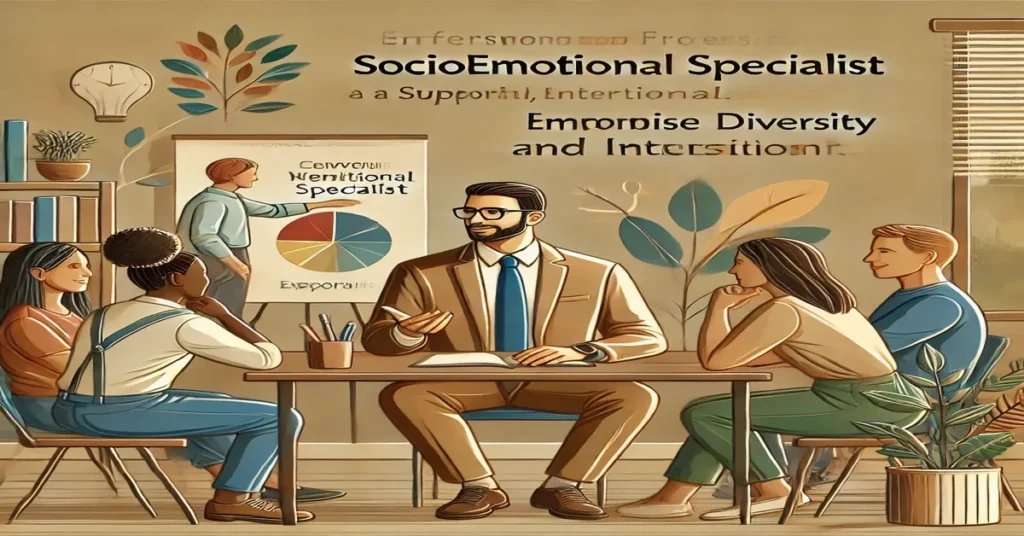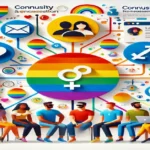In today’s rapidly evolving educational and psychological landscape, socioemotional development has emerged as a cornerstone of holistic growth and well-being. One name that has gained prominence in this field is david castillo socioemotional specialis, a socioemotional specialist whose work bridges the gap between emotional intelligence, social dynamics, and mental health. In this article, we explore the multifaceted contributions of david castillo socioemotional specialis to socioemotional development, delve into the significance of socioemotional skills in various settings, and understand how his expertise is shaping lives.
Who is David Castillo?
david castillo socioemotional specialis is a distinguished socioemotional specialist dedicated to empowering individuals through emotional resilience, effective communication, and social adaptability. His background in psychology and education, coupled with extensive field experience, has positioned him as a thought leader in socioemotional development. Castillo’s work primarily focuses on helping children, adolescents, and adults enhance their socioemotional skills, fostering environments where empathy, emotional regulation, and interpersonal skills thrive.
The Importance of Socioemotional Development
Socioemotional development refers to the process through which individuals acquire the ability to understand and manage their emotions, form meaningful relationships, and make responsible decisions. It is an essential component of human development that influences both personal and professional success. david castillo socioemotional specialis emphasizes that socioemotional skills are not innate but can be cultivated through intentional practice and guidance.
Key Components of Socioemotional Development
- Self-Awareness: Recognizing one’s emotions, strengths, and limitations.
- Self-Management: Regulating emotions and behaviors in various situations.
- Social Awareness: Understanding and empathizing with others’ emotions and perspectives.
- Relationship Skills: Building and maintaining healthy relationships through effective communication and conflict resolution.
- Responsible Decision-Making: Making ethical and constructive choices based on a sound understanding of consequences.
David Castillo’s Approach to Socioemotional Development
David Castillo employs a multidisciplinary approach that integrates psychology, education, and neuroscience. His methods are grounded in evidence-based practices and tailored to the unique needs of individuals and groups.
1. Holistic Assessment
Castillo begins by assessing the socioemotional needs of individuals or groups. This involves using psychological tools, behavioral observations, and self-report measures to identify strengths and areas for improvement.
2. Personalized Interventions
Recognizing that no two individuals are alike, Castillo designs personalized intervention plans. These may include strategies such as mindfulness exercises, role-playing scenarios, and interactive workshops to enhance emotional intelligence and social skills.
3. Collaborative Learning
Castillo emphasizes the importance of collaboration between educators, parents, and mental health professionals in fostering socioemotional growth. He often conducts training sessions and seminars to equip these stakeholders with the tools needed to support socioemotional development.
4. Continuous Monitoring and Feedback
Socioemotional development is a dynamic process that requires regular monitoring. Castillo employs data-driven methods to track progress and adjust interventions as needed, ensuring sustained growth over time.
Applications of Socioemotional Skills
David Castillo’s expertise extends across diverse settings, showcasing the universal applicability of socioemotional skills.
1. In Education
In schools, socioemotional skills are critical for creating inclusive and nurturing environments. Castillo works closely with educators to integrate socioemotional learning (SEL) into curricula, teaching students how to manage stress, resolve conflicts, and collaborate effectively.
2. In the Workplace
Incorporating socioemotional skills into workplace culture enhances productivity, employee satisfaction, and team cohesion. Castillo’s corporate training programs focus on emotional intelligence, effective communication, and leadership development.
3. In Mental Health Interventions
For individuals struggling with anxiety, depression, or trauma, socioemotional skills serve as a foundation for recovery. Castillo collaborates with mental health professionals to design interventions that promote emotional resilience and self-efficacy.
4. In Families and Communities
Socioemotional skills are vital for fostering harmonious relationships within families and communities. Castillo offers family counseling and community workshops to strengthen bonds and resolve conflicts.
The Science Behind Socioemotional Skills
David Castillo’s work is deeply rooted in the science of socioemotional development. Research in neuroscience and psychology underscores the role of the brain’s prefrontal cortex and amygdala in regulating emotions and social behaviors. Castillo leverages this knowledge to develop interventions that enhance neural pathways associated with emotional regulation and empathy.
Neuroplasticity and Emotional Regulation
One of the key principles guiding Castillo’s work is neuroplasticity, the brain’s ability to adapt and rewire itself. Through practices like mindfulness and cognitive-behavioral techniques, individuals can reshape their emotional responses and improve their socioemotional competence.
Real-Life Success Stories
David Castillo’s impact is best illustrated through the lives he has transformed. Here are a few real-life examples of his work:
1. Empowering a Struggling Student
A high school student experiencing anxiety and social isolation benefited from Castillo’s intervention. Through one-on-one counseling and SEL activities, the student developed self-confidence, improved peer relationships, and achieved academic success.
2. Fostering a Collaborative Team
In a corporate setting, Castillo worked with a team facing communication breakdowns and low morale. His training sessions on emotional intelligence and conflict resolution helped the team build trust and enhance collaboration.
3. Rebuilding Family Bonds
A family dealing with ongoing conflicts sought Castillo’s help. Through family therapy sessions, they learned to communicate effectively, empathize with each other, and rebuild their relationships.
Challenges in Socioemotional Development
While socioemotional development offers numerous benefits, it is not without challenges. David Castillo identifies common barriers such as:
- Stigma Around Mental Health: Socioemotional issues are often overlooked due to societal stigma.
- Resource Constraints: Limited access to trained professionals and SEL programs can hinder development.
- Resistance to Change: Individuals and organizations may resist adopting new practices due to fear or skepticism.
Overcoming Barriers: Castillo’s Recommendations
To address these challenges, Castillo advocates for:
- Raising Awareness: Educating communities about the importance of socioemotional skills.
- Enhancing Accessibility: Expanding access to SEL resources through online platforms and community initiatives.
- Promoting Inclusive Practices: Creating environments that value diversity and inclusivity.
David Castillo’s Vision for the Future
David Castillo envisions a future where socioemotional skills are universally recognized as essential for personal and societal well-being. He is committed to advancing research, fostering collaborations, and expanding the reach of SEL programs to create a more empathetic and resilient world.
FAQs
1. What does a socioemotional specialist do?
A socioemotional specialist like David Castillo helps individuals develop skills to understand and manage their emotions, build relationships, and make responsible decisions. They work in various settings, including schools, workplaces, and communities.
2. Why are socioemotional skills important?
Socioemotional skills are crucial for personal and professional success. They enable individuals to handle stress, resolve conflicts, communicate effectively, and build meaningful relationships.
3. How does David Castillo approach socioemotional development?
David Castillo uses a personalized, evidence-based approach that includes assessment, tailored interventions, collaborative learning, and continuous monitoring to enhance socioemotional skills.
4. Can socioemotional skills be taught?
Yes, socioemotional skills can be taught and developed through intentional practices such as mindfulness, role-playing, and SEL programs.
5. What challenges do socioemotional specialists face?
Challenges include societal stigma, limited resources, and resistance to change. Addressing these barriers requires awareness, accessibility, and inclusive practices.
6. How can I improve my socioemotional skills?
You can improve your socioemotional skills by practicing self-awareness, seeking feedback, engaging in mindfulness activities, and participating in workshops or counseling sessions focused on emotional intelligence.







